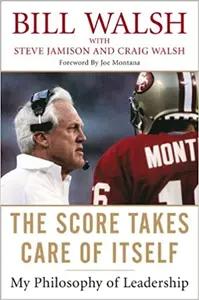Intellectuals and Race
By Thomas Sowell
Category
CultureRecommended by
In "Intellectuals and Race," Thomas Sowell delves into the controversial topic of race and the role played by intellectuals in shaping public discourse on this highly sensitive issue. Drawing from a broad range of disciplines such as history, economics, psychology, and anthropology, Sowell questions the prevailing beliefs held by intellectuals regarding the importance of race in explaining disparities between different groups.
Through meticulous analysis, Sowell dismantles the widely accepted notion that racial differences in achievements can primarily be attributed to systemic discrimination or inherent superiority. He argues that intellectual elites, through their influence in academia, media, and politics, perpetuate a narrative that distorts reality and stifles genuine discussion and inquiry.
By examining the historical context and examining empirical evidence, Sowell challenges the popular hypothesis that disparities reflect systematic biases. He sheds light on the complex interplay of various factors such as culture, human capital, and personal choices, challenging the simplistic narrative often perpetuated by intellectuals.
Sowell argues that intellectuals, despite their significant influence, often fail to provide rigorous reasoning and objective analysis when discussing race. Instead, he encourages a more honest and nuanced conversation that acknowledges the complexity of human interactions and the individual agency of all individuals.
In "Intellectuals and Race," Sowell invites readers to critically evaluate common assumptions on race and challenge the prevailing discourse perpetuated by those in positions of influence. Through his incisive analysis and evidence-based arguments, Sowell seeks to foster a more informed and productive public dialogue, leading to a better understanding of the multifaceted dynamics at play when discussing race.
Through meticulous analysis, Sowell dismantles the widely accepted notion that racial differences in achievements can primarily be attributed to systemic discrimination or inherent superiority. He argues that intellectual elites, through their influence in academia, media, and politics, perpetuate a narrative that distorts reality and stifles genuine discussion and inquiry.
By examining the historical context and examining empirical evidence, Sowell challenges the popular hypothesis that disparities reflect systematic biases. He sheds light on the complex interplay of various factors such as culture, human capital, and personal choices, challenging the simplistic narrative often perpetuated by intellectuals.
Sowell argues that intellectuals, despite their significant influence, often fail to provide rigorous reasoning and objective analysis when discussing race. Instead, he encourages a more honest and nuanced conversation that acknowledges the complexity of human interactions and the individual agency of all individuals.
In "Intellectuals and Race," Sowell invites readers to critically evaluate common assumptions on race and challenge the prevailing discourse perpetuated by those in positions of influence. Through his incisive analysis and evidence-based arguments, Sowell seeks to foster a more informed and productive public dialogue, leading to a better understanding of the multifaceted dynamics at play when discussing race.
Share This Book 📚
More Books in Culture

The Coddling of the American Mind
Greg Lukianoff & Jonathan Haidt

Brotopia
Emily Chang

The True Believer
Eric Hoffer

Wanting
Luke Burgis

Give and Take
Adam Grant

Masters of Doom
David Kushner

The Holy Bible
Various

The Moment of Lift
Melinda Gates

21 Lessons for the 21st Century
Yuval Noah Harari

The Better Angels of our Nature
Steven Pinker

The Diversity Myth
Peter Thiel & David Sacks

Winners Take All
Anand Giridharadas

Between The World And Me
Ta-Nehisi Coates

Conspiracy
Ryan Holiday

Decoded
Jay-Z

Play It Away
Charlie Hoehn

San Fransicko
Michael Shellenberger

Sex at Dawn
Christopher Ryan

The Death and Life of Great American Cities
Jane Jacobs

The New Jim Crow
Michelle Alexander

The Storytelling Animal
Jonathan Gottschall

The Watchman's Rattle
Rebecca Costa

Who Is Michael Ovitz
Michael Ovitz

A Heartbreaking Work of Staggering Genius
Dave Eggers

A Short History of Myth
Karen Armstrong

Amusing Ourselves to Death
Neil Postman

Art of the Living Dead
Adrian Hanft

Bass Culture
Lloyd Bradley

Be Here Now
Ram Dass

Beyond Religion
Dalai Lama
Popular Books Recommended by Great Minds 📚

Zero to One
Peter Thiel

Only the Paranoid Survive
Andy Grove

Superforecasting
Philip Tetlock

Scale
Geoffrey West

The Undoing Project
Michael Lewis

Influence
Robert Cialdini

Dune
Frank Herbert

Why We Sleep
Matthew Walker

Becoming Steve Jobs
Brent Schlender

The Moment of Lift
Melinda Gates

Economics in One Lesson
Henry Hazlitt

The Intelligent Investor
Benjamin Graham

Hillbilly Elegy
J.D. Vance

The Third Wave
Steve Case

The Sovereign Individual
James Dale Davidson & William Rees-Mogg

Guns, Germs, and Steel
Jared Diamond

Billion Dollar Whale
Tom Wright

Principles for Dealing With The Changing World Order
Ray Dalio

Behave
Robert Sapolsky

Meditations
Marcus Aurelius

Poor Charlie's Almanack
Charlie Munger

The Score Takes Care of Itself
Bill Walsh

Masters of Doom
David Kushner

Behind the Cloud
Marc Benioff

Red Notice
Bill Browder

The Autobiography of Benjamin Franklin
Benjamin Franklin

Mindset
Carol Dweck

The True Believer
Eric Hoffer

The Power of Habit
Charles Duhigg

Hopping Over The Rabbit Hole
Anthony Scaramucci
